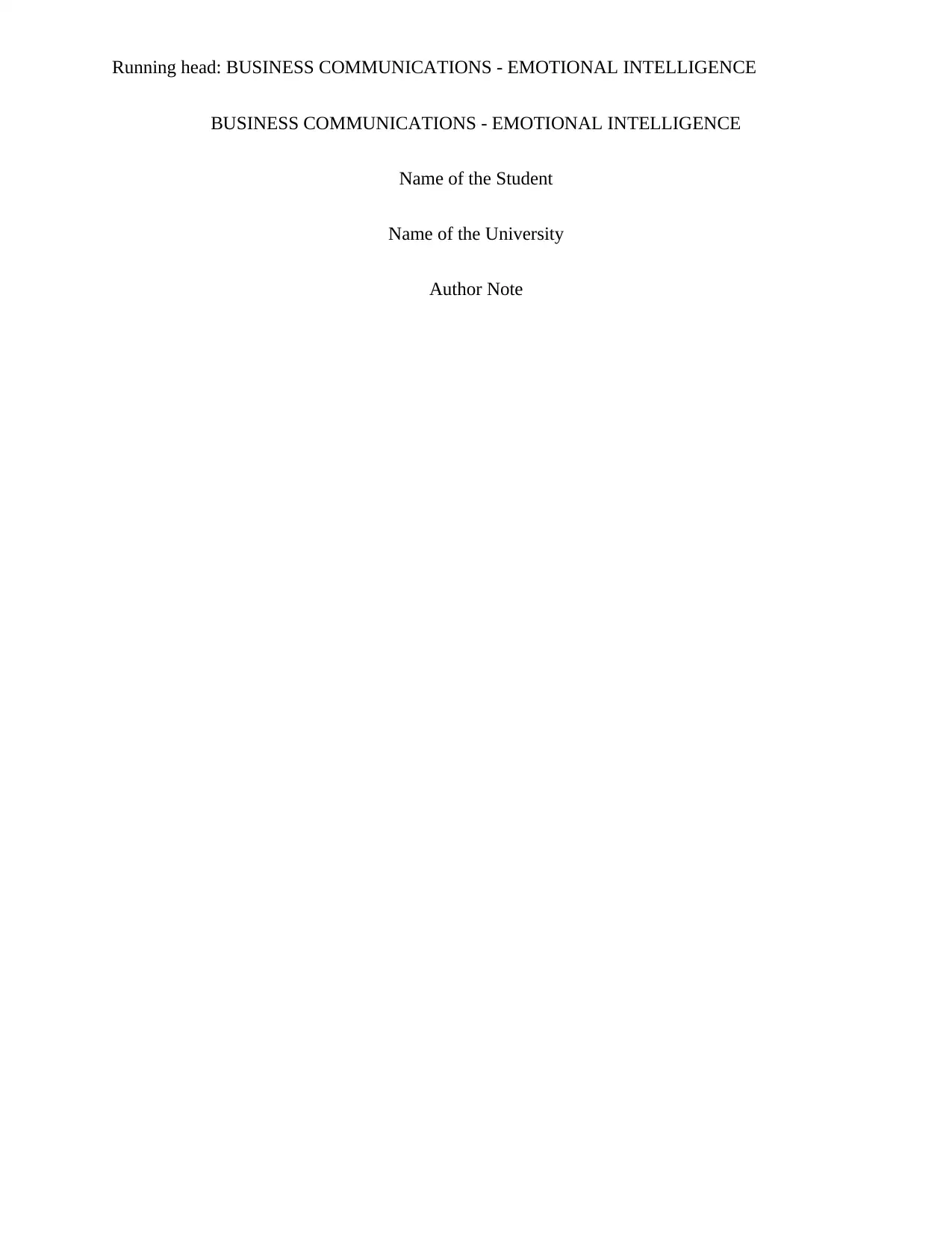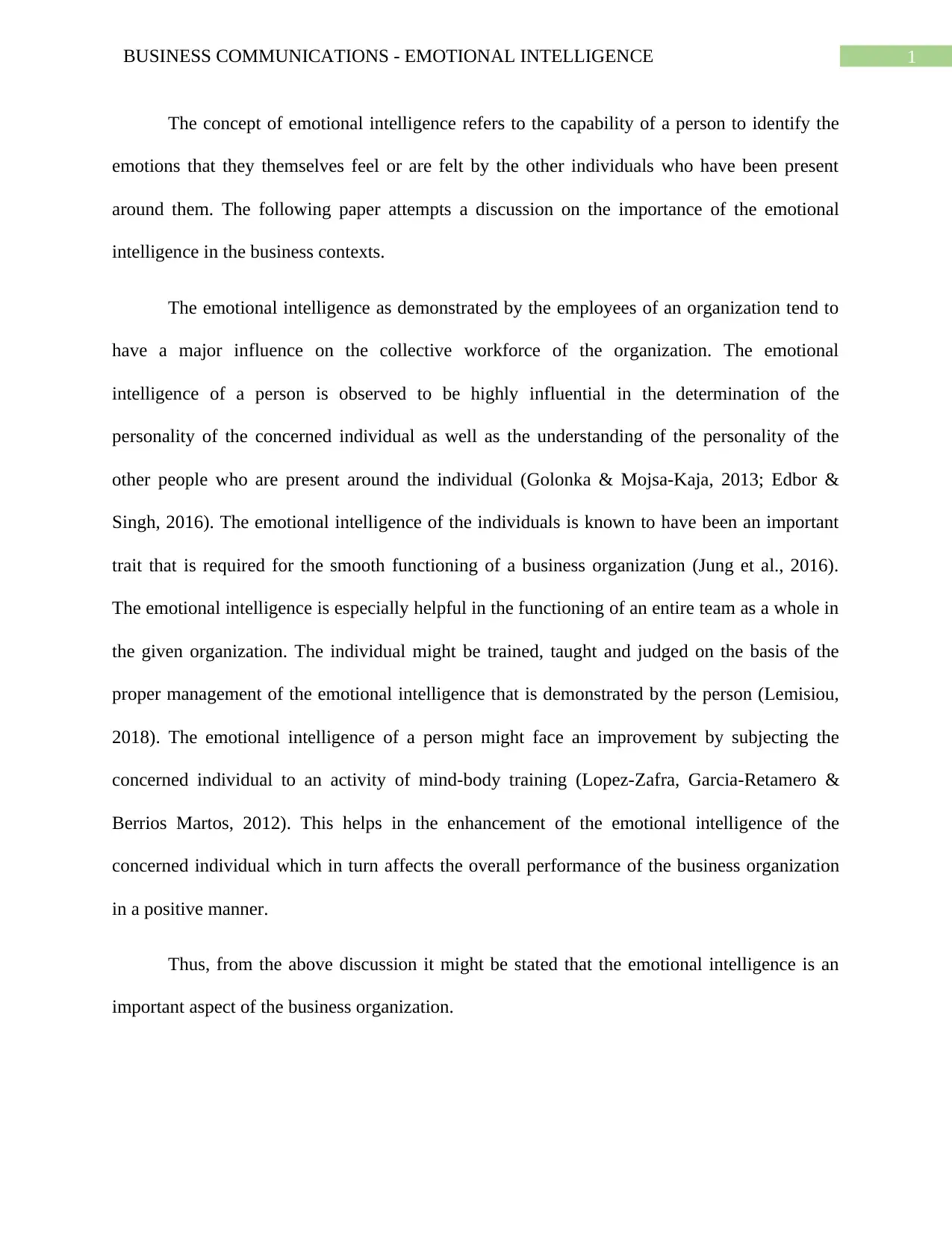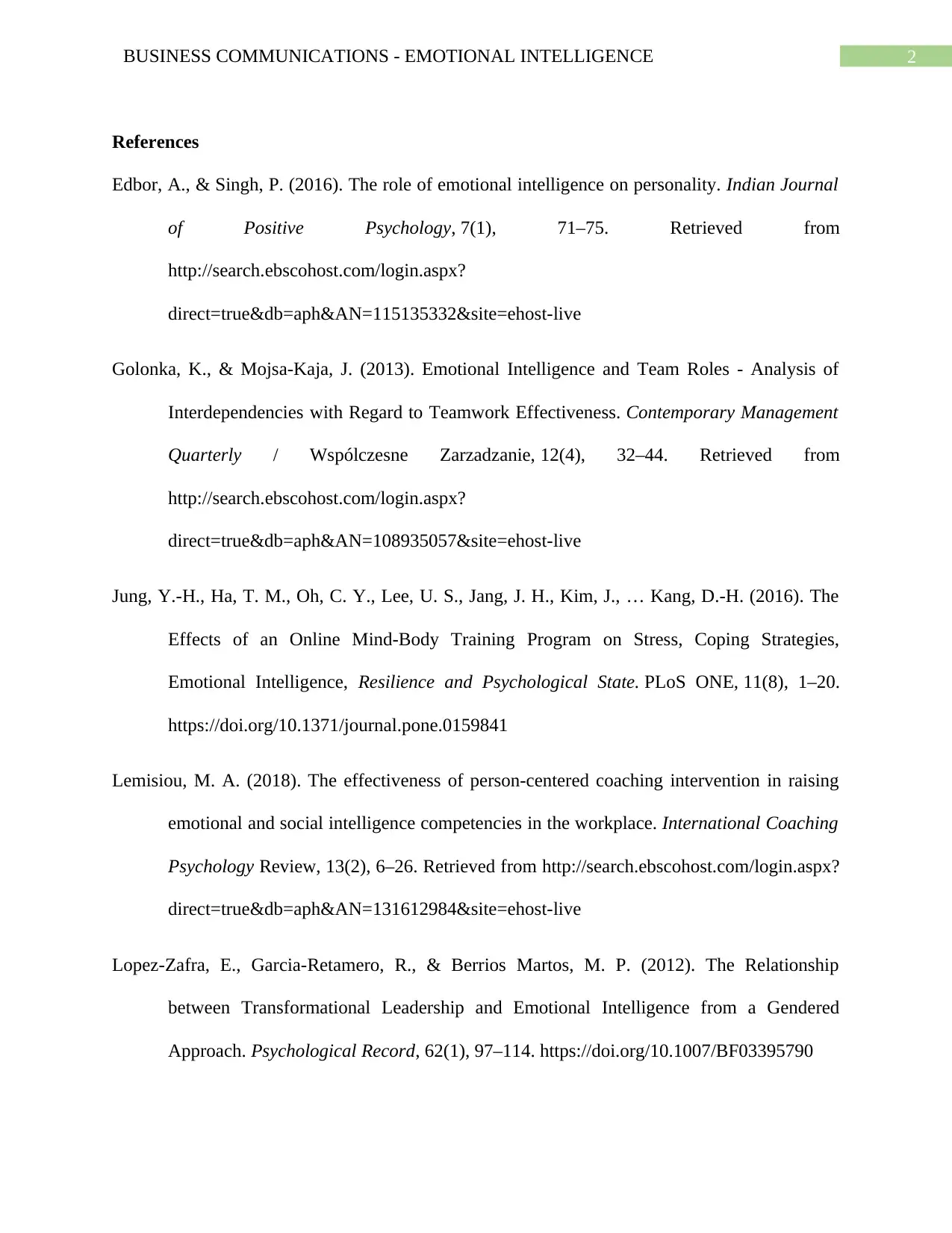Assessment Report: Emotional Intelligence and Business Communication
VerifiedAdded on 2023/01/04
|3
|603
|32
Report
AI Summary
This report examines the significance of emotional intelligence (EI) in business contexts. It highlights how EI, defined as the ability to identify and manage emotions, influences individual personalities, team dynamics, and overall organizational performance. The report emphasizes that EI is crucial for effective business functioning and can be enhanced through training. It discusses the impact of EI on teamwork, leadership, and employee performance. The report references several academic sources to support its arguments, underscoring the importance of EI in business communication and suggesting that it is a key factor in organizational success. The report also focuses on how mind-body training can improve EI. The author concludes that EI is an important aspect of a business organization.
1 out of 3





![[object Object]](/_next/static/media/star-bottom.7253800d.svg)